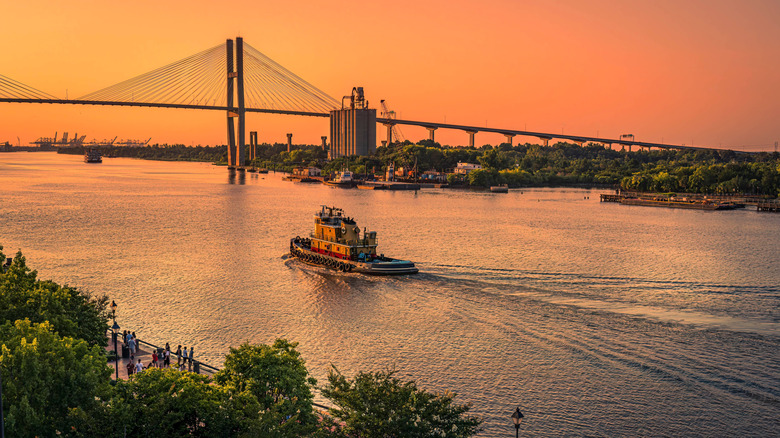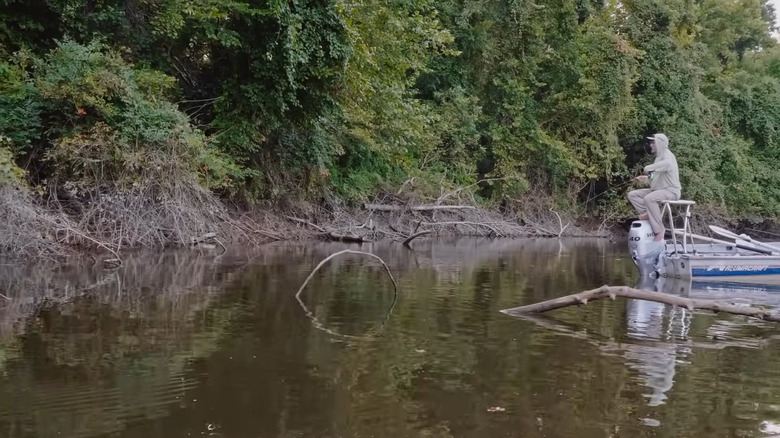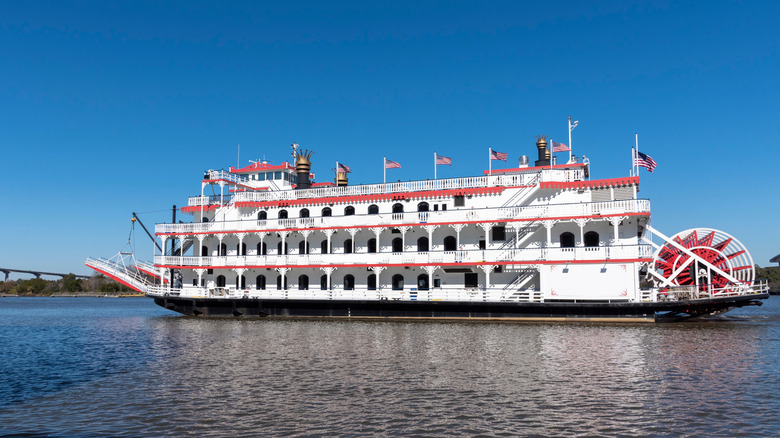America's New Bass Species Can Be Found In This Scenic Georgia River Prime For Fishing And Watersport Fun
We may receive a commission on purchases made from links.
Forming much of the border between Georgia and South Carolina, the Savannah River is a winding, sinuous confluence of tributaries, beginning at the popular fishing and dockside dining escape, Lake Hartwell, and threading its way southeast to the Atlantic Ocean. The river is known for its cute riverside towns and outdoor activities in places like the Savannah National Wildlife Refuge. Fishing, in particular, is a popular activity along the river, as the river is known for its diverse population of fish, amphibians, and birds. And now, it's also officially the only place in the world to find an elusive species of black bass, known as Bartram's Bass.
Known colloquially for years as redeye bass, the South Carolina Department of Natural Resources (SCDNR) announced in a press release on September 2 that the species has been officially renamed to Bartram's Bass, after the 18th-century naturalist William Bartram. This move came after careful research and conservation efforts jointly run by the SCDNR, the Georgia Department of Natural Resources, the University of Georgia, and Clemson University. These fish are endemic to the Savannah River system, meaning they are found nowhere else in the world. As a result, they're also considered severely endangered due to competition from other species and hybridization.
Because they're endangered, anglers are encouraged to leave them alone while fishing, although there are no rules against catching them. Don't worry, though, even if taking home Bartram's Bass isn't an option, the Savannah River has plenty of other fish to catch. And, for those who aren't fishing enthusiasts, it also has plenty of watersports options and swimming holes.
Fishing along Savannah River
The Savannah River is one of Georgia's most important conservation areas, largely because of its importance as a native habitat for many species of fish. The river has 108 species of fish, with around 18 of those considered endangered or severely threatened. However, the Georgia Department of Natural Resources keeps plenty of fish for anglers to catch and take home, although you'll need a valid Georgia fishing license regardless of where you fish in the state. Some of the most commonly found fish in the Savannah River include bass, crappies, catfish, and bream.
If you're looking for a mix of saltwater fishing and freshwater fishing, then you need to go past Savannah, with its picturesque streets and cozy dining. Right where the river meets the sea is Tybee Island, a small island bordering the Savannah River and the Atlantic Ocean. There, you can try your hand at fishing from the shore from one of the island's public fishing piers: Lazaretto Creek Pier, Tybee Island Pier, and Fisherman's Walk. If you want to hit the water by boat, check out Tybee Island Charters, rated 5 stars on TripAdvisor and captained by experienced anglers who offer both deep-sea and inshore fishing.
For bass fishing, you'll want to head upstream towards Augusta. This charming city sits right alongside the Savannah River, and because it's further away from the coast, there's plenty of freshwater fishing to be done here. One of the popular local spots is the New Savannah Bluff Lock and Dam Park, an inactive historical dam turned park and public fishing spot. The creeks and streams off the river, along with Lake Hartwell, are also good fishing spots.
Watersports and swimming along the Savannah River
If fishing isn't your thing, no problem! The Savannah River is also popular for watersports, scenic cruises, and swimming. If you're looking for lake-top watersports, you'll want to check out Lake Hartwell — the origin of the Savannah River — or Clark's Hill Lake. Both sites allow boating and jet skiing, and you can also swim in designated areas on the lake.
If you want to take in the sights on a scenic cruise, head down to Savannah. You can take in the city from aboard the Georgia Queen or the Savannah River Queen via the Savannah Riverboat Cruises — rated 4 stars on Viator — and even enjoy themed cruises or meals on the boat.
Swimming is also allowed along the Savannah River, but with some caveats. Keep an eye out for weather conditions or water levels that might make swimming more dangerous, as the Savannah River averages a depth of 10 to 40 feet, but can reach 105 feet at its deepest. Try to find shallow areas or ponds to swim in, as the depth of the river might contain underwater currents you can't see from the surface. Also, you might consider skipping a swim in the Chattooga River, one of the Savannah River's tributaries, as it's one of the most alligator-infested bodies of water in the U.S.


